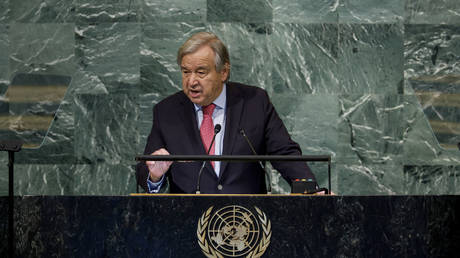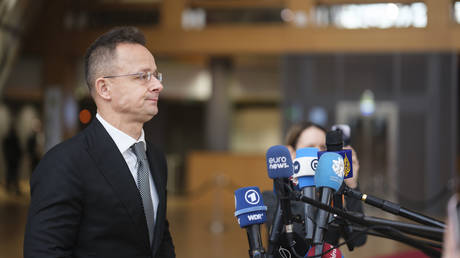
Women’s rights are still being abused and violated around the world, says United Nations Secretary General Antonio Guterres
The hope of achieving gender equality throughout the world “is growing more distant,” UN Secretary General Antonio Guterres claimed on Monday during a speech to the Commission on the Status of Women.
Speaking ahead of the upcoming International Women’s Day on March 8, Guterres proclaimed that true gender equality is “300 years away,” citing an estimate from UN Women – an organization dedicated to gender equality and the empowerment of females.
According to Guterres, high rates of maternal mortality, girls being forced into early marriage and being threatened with being kidnapped and assaulted for attending school in some parts of the world is evidence that gender equality is still a distant goal.
“Women’s rights are being abused, threatened, and violated around the world,” Guterres said, noting that “progress won over decades is vanishing before our eyes.”
The UN chief drew special attention to the particularly dire situation in Afghanistan, where he said “women and girls have been erased from public life.”
That’s as the Taliban, which came back to power in Afghanistan in 2021, has issued a nation-wide ban on female education beyond the sixth grade and banned women from many jobs and public places such as parks and gyms.
The Secretary General also pointed out that women and girls are being left behind in technology and innovation, noting that just 19 percent of women in the least developed countries are connected to the internet.
“Misogynistic disinformation and misinformation flourish on social media platforms,” he said, adding that so-called “gender-trolling” is “specifically aimed at silencing women and forcing them out of public life.”
In order to achieve gender equality, Guterres suggested that there must be “collective” and “urgent” action, such as increasing the education, income and employment for women and girls, particularly in developing nations in the Global South.
“Centuries of patriarchy, discrimination and harmful stereotypes have created a huge gender gap in science and technology,” the UN chief said, noting that women represent only 3% of Nobel prize winners in those fields.
He called on governments across the world, civil society and the private sector to provide gender-responsive education, improve skills training and invest in “bridging the digital gender divide.”




